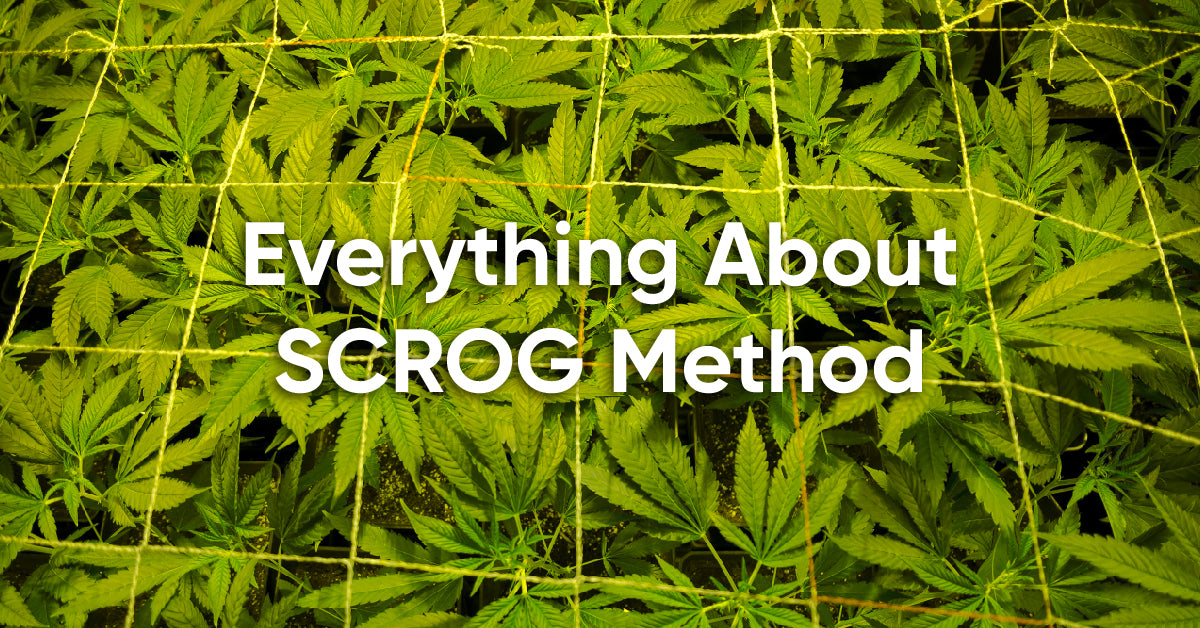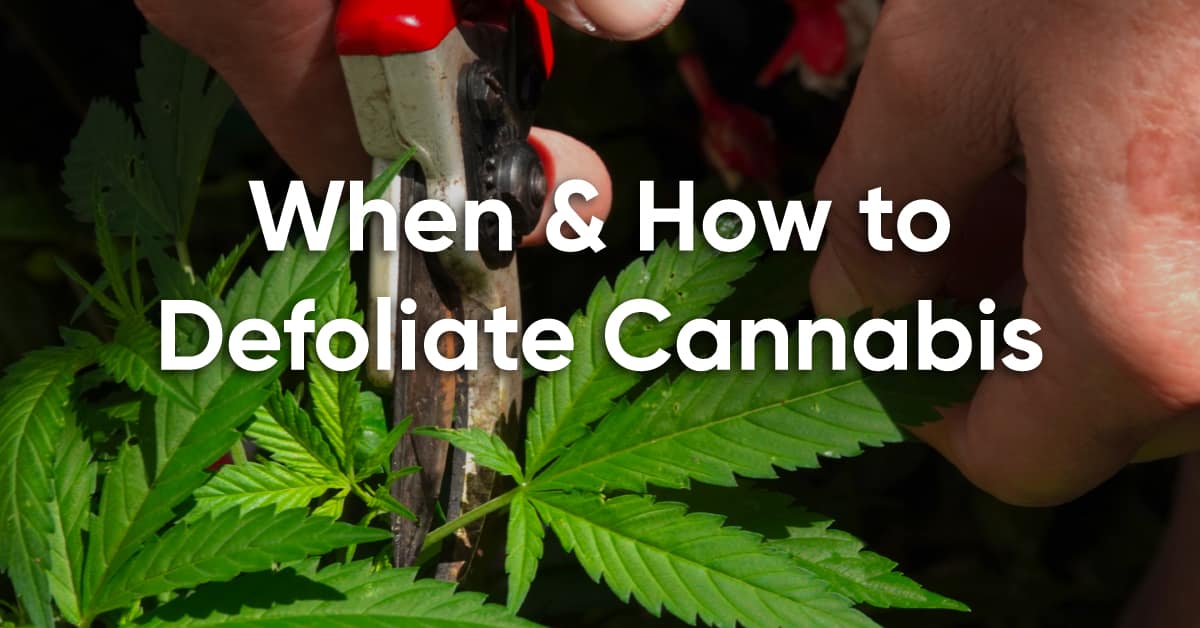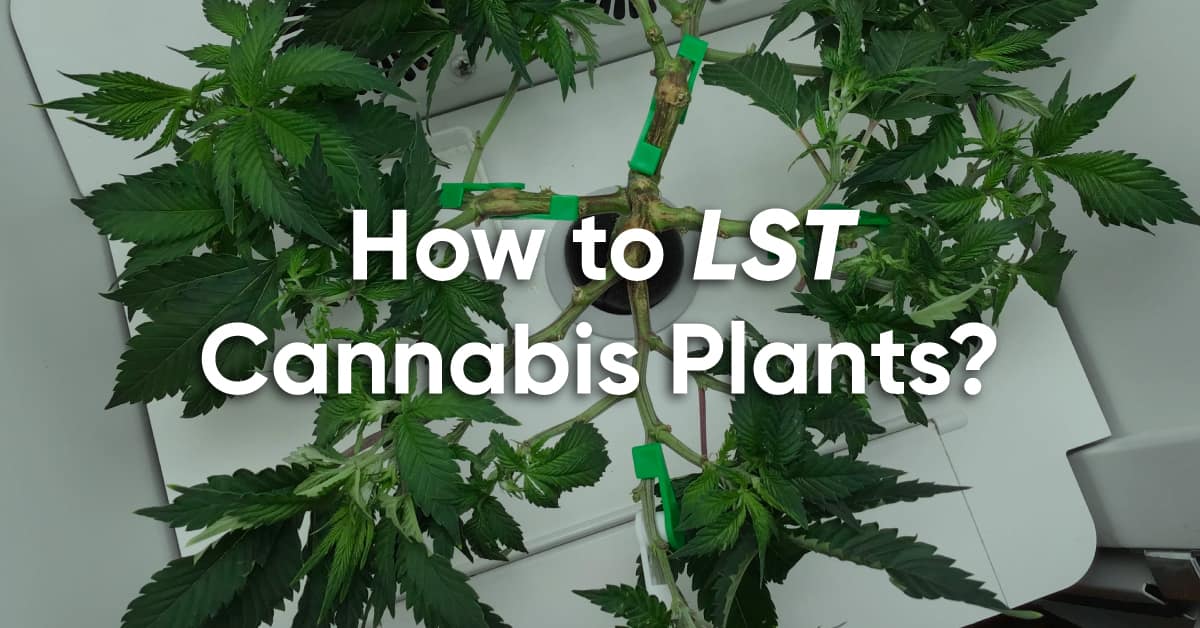How to Top Cannabis Plants?
Topping cannabis plants is a training technique popular amongst experienced growers, and for good reason. It's a simple yet incredibly effective task with significant advantages. In this article, we will explore the art of topping, covering its benefits, best practices, and potential downsides for growers aiming to optimize their grow space and harvest.
What is Cannabis Topping Technique?
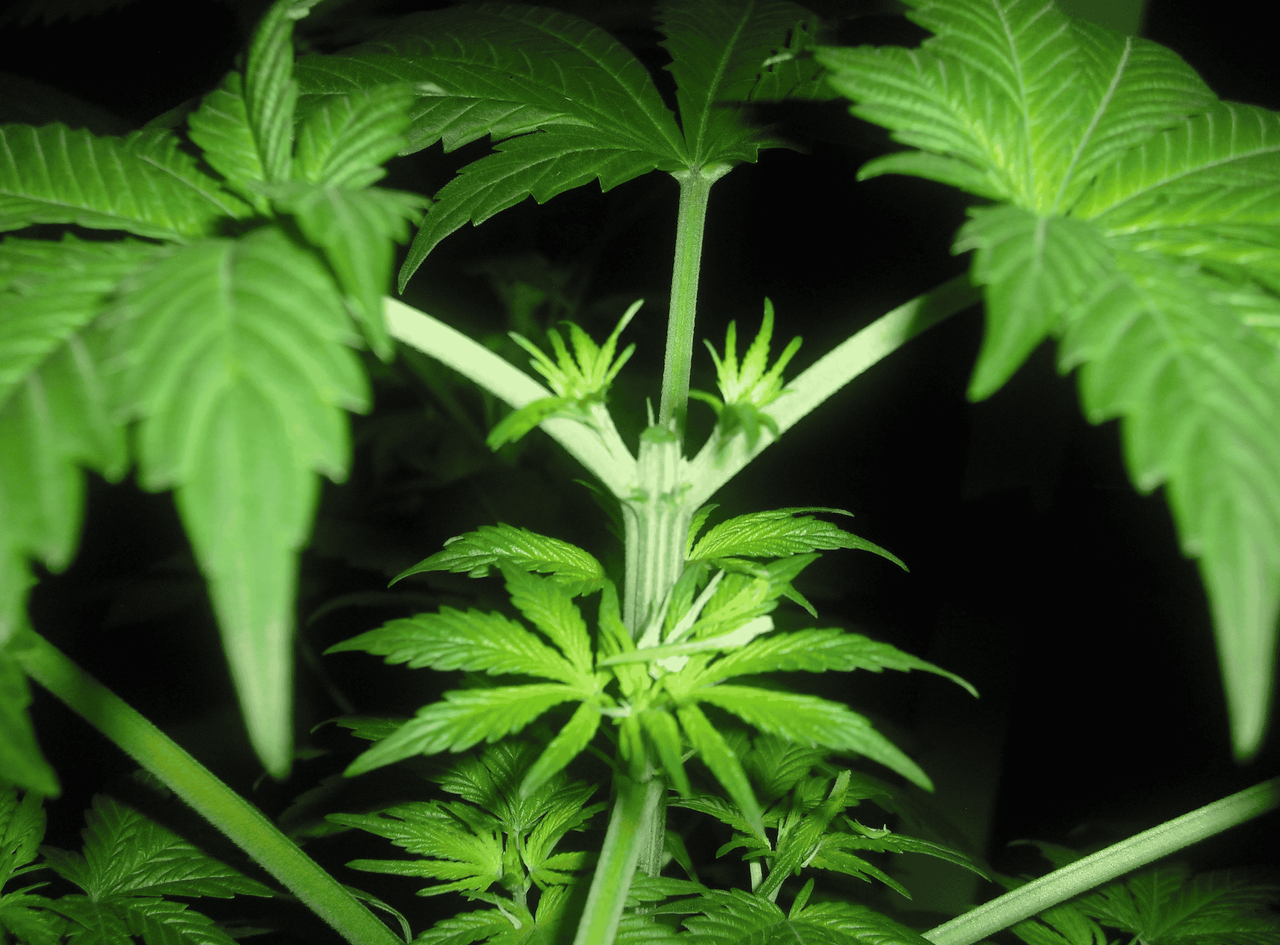
Topping cannabis plants is the technique of removing the uppermost growth tip from the main stalk. Usually, growers wait until the plant has developed 6-8 nodes (approximately 6-10 inches tall), and then clip off the very top 2-3 nodes. The benefits are numerous: maximized yield potential, increased potential of quality, better lateral growth, and bushier, more robust plants!
Why You Should Top Cannabis Plants?
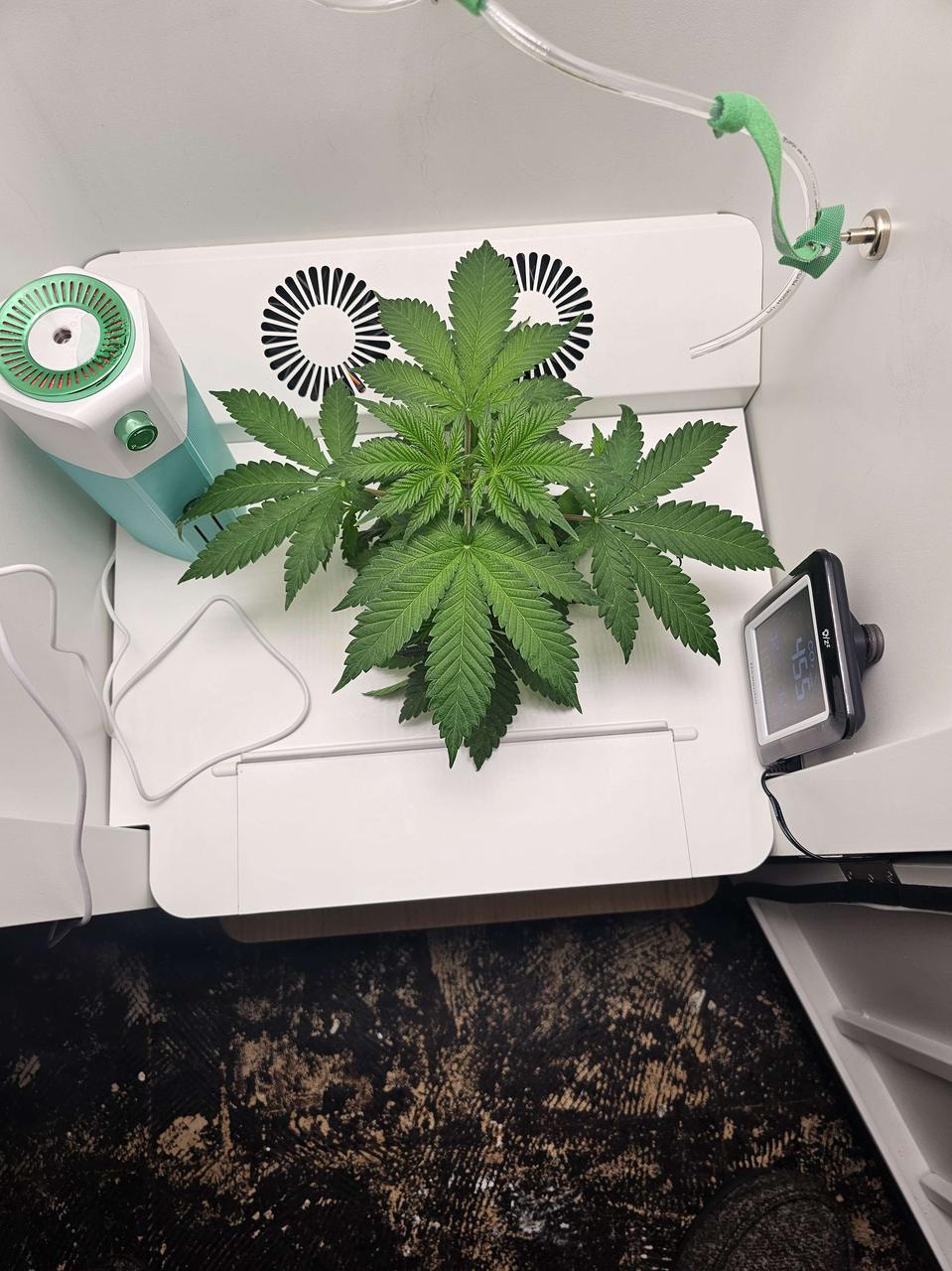
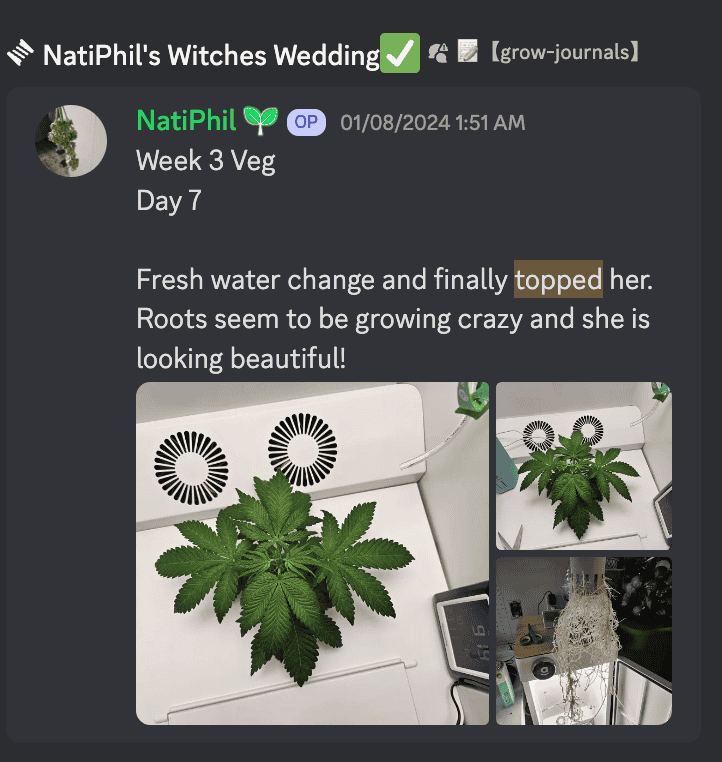
Topping your cannabis encourages the development of lower branches and growth sites. Cannabis plants naturally grow in a structure resembling a Christmas tree, with a single main stalk and multiple branches below it. This structure of having one main stalk, referred to as "apical dominance," means that the main or dominating stalk will be the first to receive water, nutrients, and growth hormones (auxins).
By removing the top of this main stalk, you are breaking the apical dominance, which allows for a more even distribution of the plant's resources. This adjustment enables the lower branches to receive a greater share of resources directly. Consequently, lower growth can branch off and become bigger, stronger independent main branches.
This robust, candleabra-like structure can dramatically increase the plant's yield potential. The more main branches the plant has, the greater the potential yield.
Topping vs FIMing
There's also a technique called "FIMing," which is basically a micro-topping. The FIMing technique has a similar effect to topping, but is less invasive and harmful to the plant. However, it may also have a slightly lesser impact.
When FIMing, you'll still remove the very tip of the main stalk, but you'll cut off less compared to traditional topping. Some growers will use the FIM technique to stop or slow down vertical growth.
Beginner's Guide on How to Top Cannabis Plants
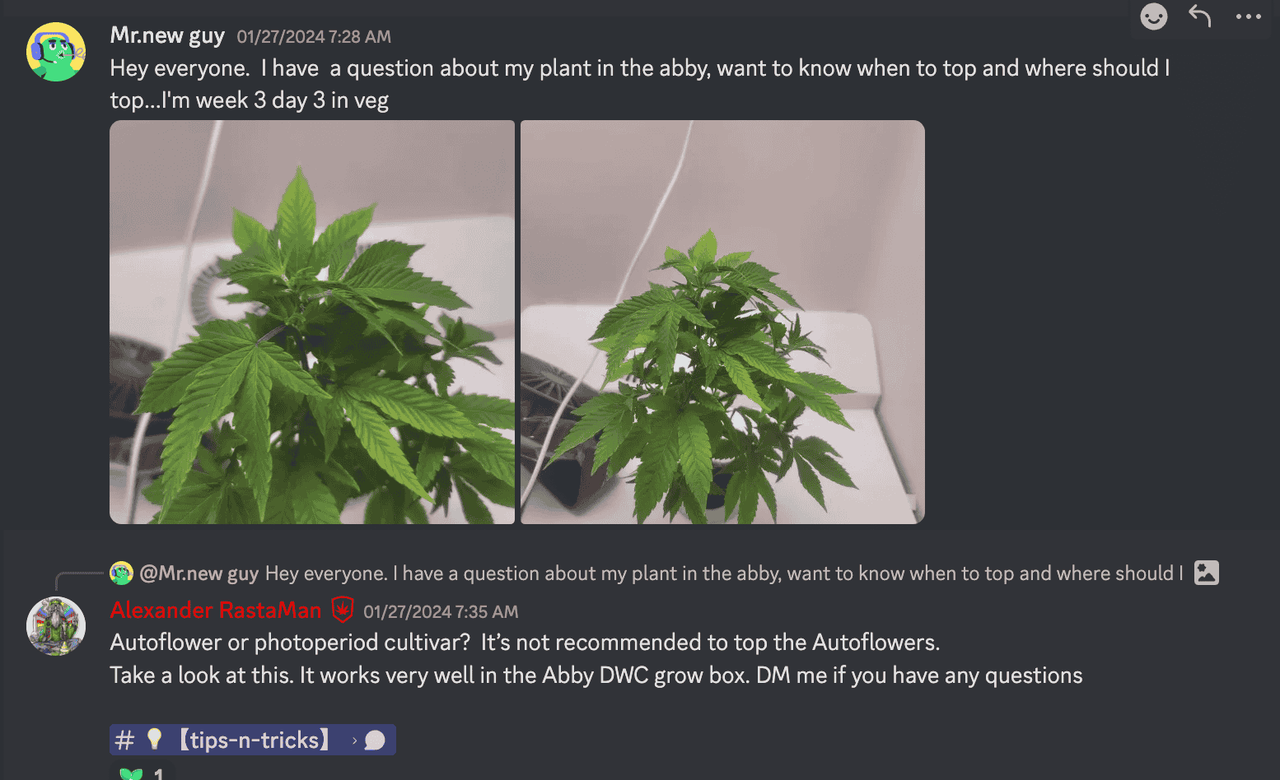
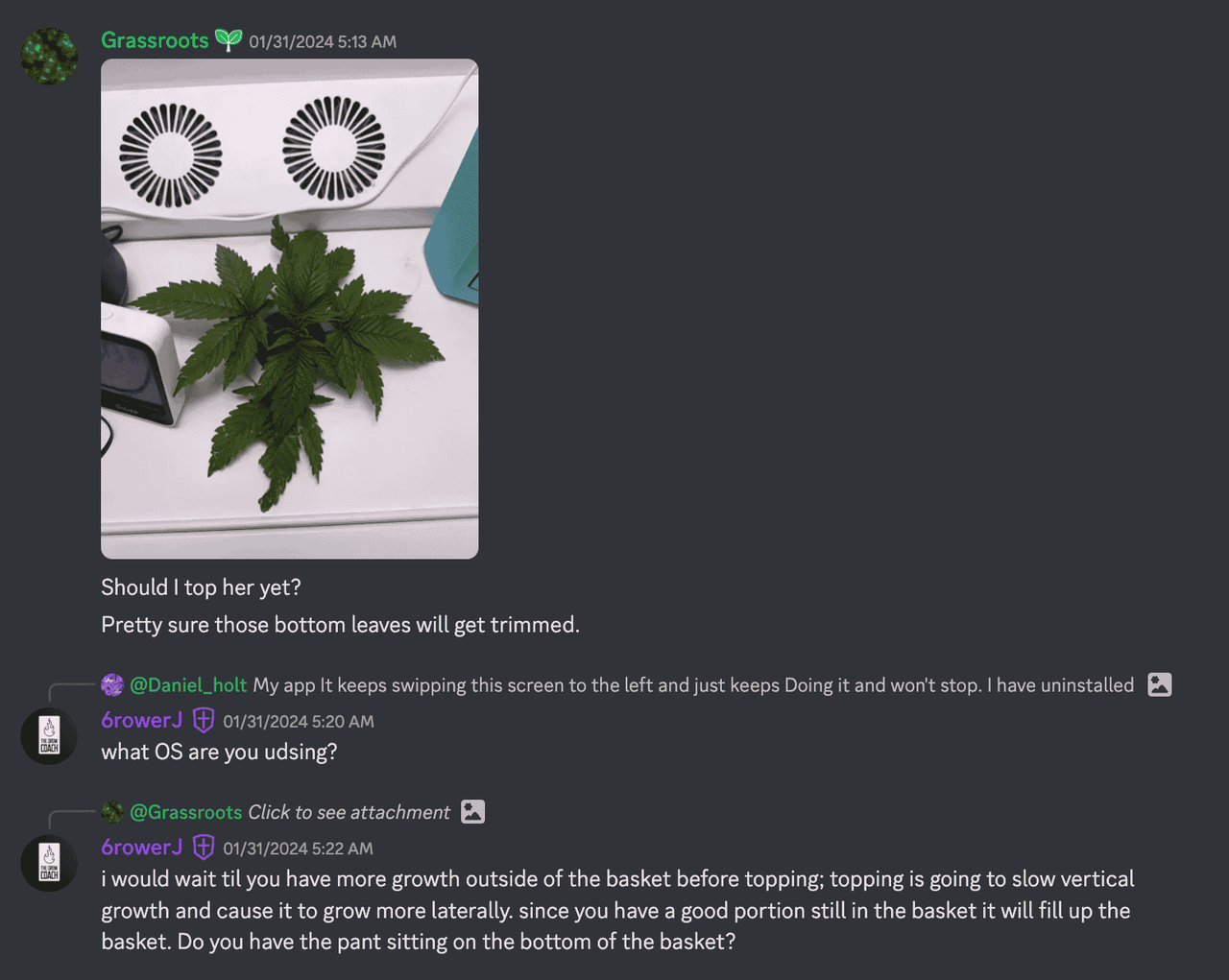
questions on topping in the Hey abby community
You're probably wondering exactly how to top cannabis plants. Topping cannabis is very simple, but it can feel a bit counterintuitive and nerve-wracking since you're literally cutting off the top of the plant.
To top the cannabis plant, start by identifying the main stalk. The main stalk is usually the first branch to develop, and is the tallest, thickest, most central part of the plant, supporting the lower growth sites and branches. You can find the main stalk by tracing from the base of the plant, and following the thickest, most central growth upwards.
Once you've found the main stalk, follow it up to its very tip-top growth. Then, completely cut off the top 2-3 nodes (usually the top 2-3 inches). If you're opting for FIM or micro-topping, you'll only need to remove the very tip-top node of the plant (usually the top 0.25-0.5 of an inch), instead of cutting off multiple nodes. Check out our laid-back guide to the anatomy of weed plants, where we explain the plant's nodes clearly.
Once you've removed the top node(s), your plant has been topped or FIMed. Congratulations! You're on your way to a stronger plant with higher yield potential!
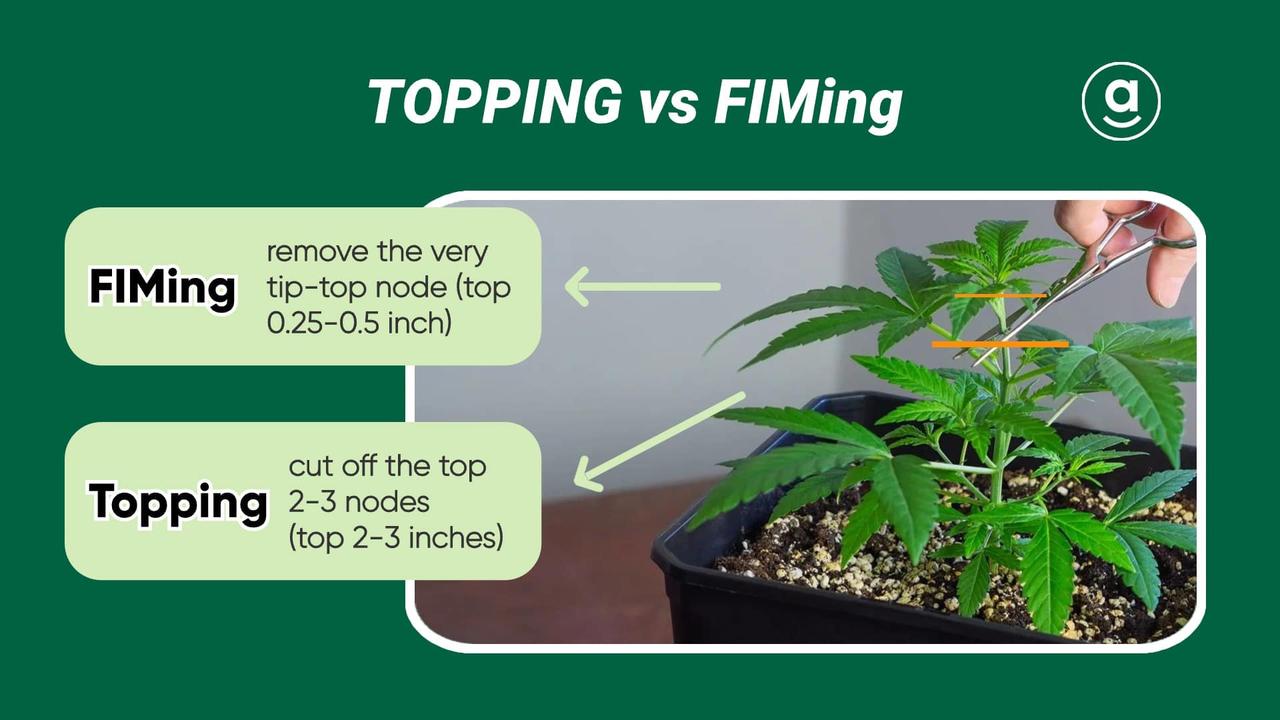
When to Top Cannabis Plants?
Topping and training go hand in hand. The earlier you can top the cannabis plant and begin training, the better.
This early intervention provides ample time for the plant to build a better structure, maximizing both yield and quality potential.
However, you need to make sure the plant has enough growth below the topping point to support continued development and essential plant processes.
It's recommended to top the plant once it has 6-8 nodes or has reached a height of about 6-8 inches. This ensures that there's adequate growth to sustain the plant post-topping. If you opt for FIM instead of a full topping, you can do so as soon as the plant has recovered from transplanting. Personally, I prefer to FIM my clones around day 5 of the veg stage!
Is Topping Autoflower a Good Idea?
Topping autoflowers is a controversial topic. While some growers believe it's fine to top autoflowers, others, including myself, prefer not to take the chance. Autoflower strains start flowering based on their level of maturity, rather than a change in light schedule like photoperiod strains. Excessive stress, such as topping, can cause them to flower prematurely.
For this reason, I do not recommend topping autoflowers. However, there are many alternative great training techniques that can be applied to autoflower strains to improve their structure and overall growth.
Potential Downsides of Topping
If done properly, there are very few downsides to topping cannabis plants. One concern is the stress reaction from the plant; some strains may be more sensitive than others, and may take longer to recover from topping.
Additionally, since topping induces some stress, and temporarily halts vertical growth, it may prolong the length of vegetative stage.
Despite these potential risks, the benefits of topping far outweigh them. However, the most significant risk to be cautious of is the potential for infection. Since you cut directly from the plant, it leaves an open wound on the central/main pipeline, which acts like a straw, responsible for transporting water, nutrients, and resources throughout the plant. This open wound can lead to pathogen or disease infection.
However, this risk can be mitigated by using clean tools and gloves when topping to avoid contraction of any pathogens, diseases, or viruses.
Not Sure How to Train Plants Properly? Grow with Hey abby—We’ve Got You Covered!

Hey abby’s smart marijuana grow kit makes home growing effortless, even if you’re new to plant training. With every grow box purchase, you’ll get 3 months of 1-on-1 expert support, with quick responses right in the app. Our team is here to help with training techniques, plant issues, and maximizing your yield.
Plus, our app provides a clear grow calendar and step-by-step video tutorials tailored to each growth stage, ensuring a smooth and successful grow from start to finish!
Get Weekly Expert Tips, and Grow Healthy Plants
Join our newsletter to get exclusive growing tips delivered directly to your inbox.

